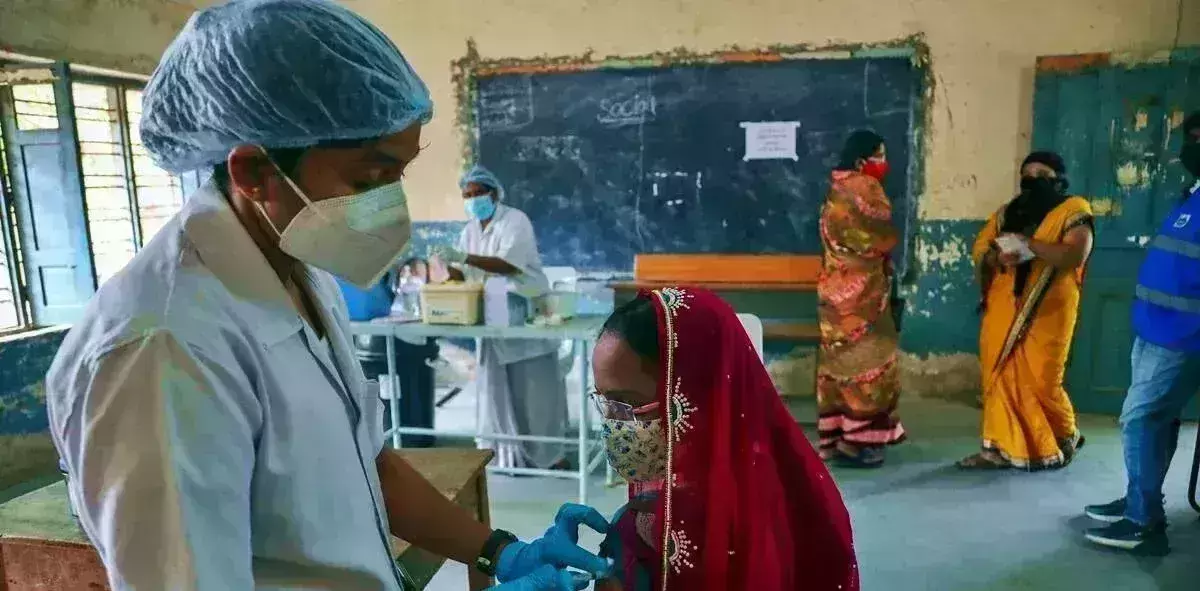
Flexible, agile vaccination strategy can help India in saving lives: Lancet
text_fieldsA Lancet report published on Friday shed more light on potential steps that India can take to tackle the raging coronavirus disease (Covid-19) outbreak in the country, pointing out that a 'flexible' and 'agile' vaccination strategy is the need of the hour.
The report titled 'Responsive and Agile Vaccination Strategies Against COVID-19 in India' and published by The Lancet Global Health on Friday argued that its analysis offers a demonstration of the principle that even limited vaccination resources could be marshalled for maximum impact if deployed flexibly in response to a rapidly evolving epidemic.
The report also highlighted the importance of sentinel site-based surveillance and detection of early warning signals through test positivity ratio (TPR).
The report further noted that door-to-door vaccination strategies would not be a feasible option under current guidelines as India's present COVID-19 vaccination programme requires that all vaccine recipients be observed for 30 min at the vaccination session sites after receiving a dose to identify and manage any adverse events.
Considering the past experience from influenza pandemics in 1918 and 2009, as well as the current COVID-19 pandemic in other countries, the report highlighted the potential for not just two, but subsequent waves of infection.
According to the report, India has already administered 199 million doses of vaccine, and records for adverse events following immunisation have "reassuringly captured a very low rate of side-effects", the possibility of shortening the observation period following vaccination is being discussed.
"Such measures will help to speed up vaccination while maintaining safety," it said.
It also noted that there is a "mixed picture" on the single-dose efficacy of currently available vaccines against B.1.617.2, the dominant COVID-19 variant in India.
Currently, there is a mixed picture of the single-dose efficacy of currently available vaccines against B.1.617.2, the dominant variant now circulating in India. Early findings from the UK suggest that for ChAdOx1 nCoV-19, single-dose efficacy against this variant is substantially reduced when considering symptomatic infection as an endpoint.
"However, more recent findings suggest that protection against hospitalisation is as high as 71 per cent. Similarly, single-dose protection against hospitalisation has been reported among healthcare workers in India," the report said.
It also stated that additional analysis illustrates that rapid-response vaccination could still have a substantial effect on deaths, even if single-dose vaccine efficacy were reduced to 30 per cent.
The Lancet report suggested that a strategy might be pre-emptively to identify and vaccinate those districts most at risk of resurgence through serological surveys to identify regions with lower levels of previous exposure.
"It will be important to adjust for population density and other factors to make systematic comparisons of seroprevalence across different regions, but the collection of the necessary evidence will take time. In the immediate term, more rapidly deployable strategies are urgently needed," the report from The Lancet read.






















